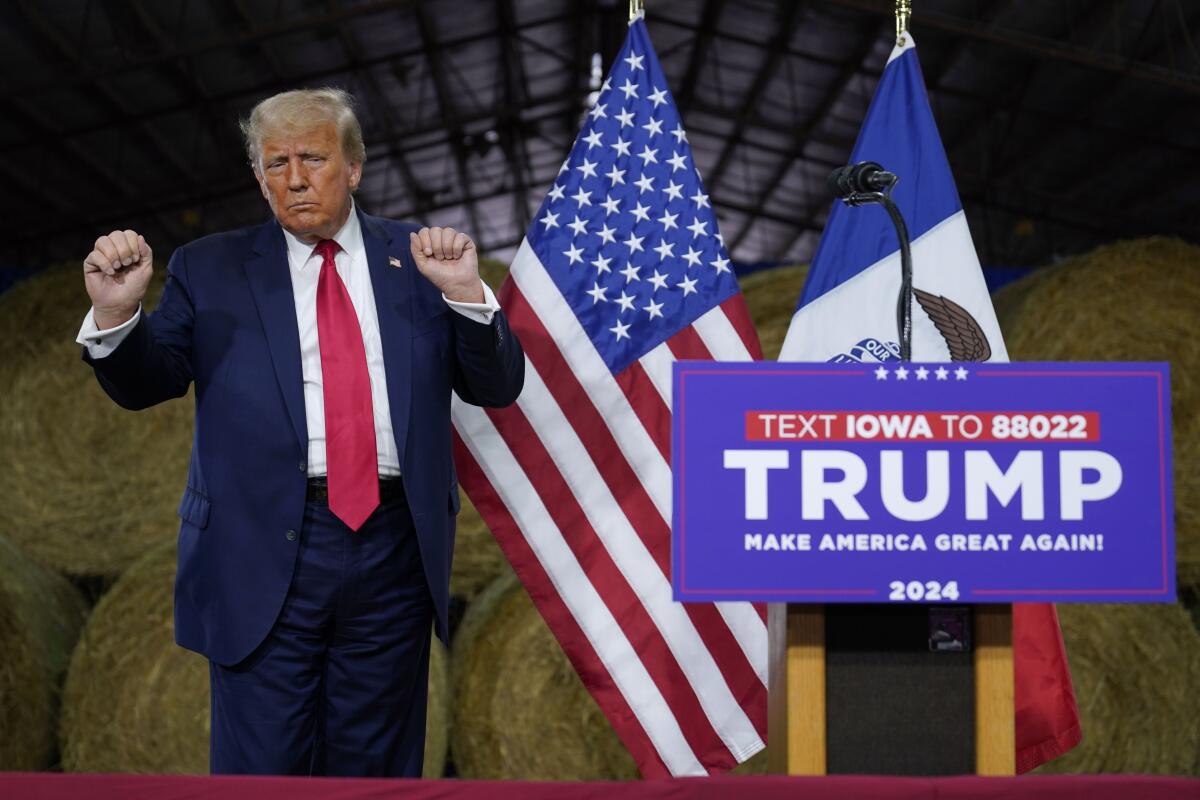Letters to the Editor: There’s no good 1st Amendment argument against Trump’s gag order

- Share via
To the editor: Given my former 28-year tenure on the board of the American Civil Liberties Union of Southern California, where the 1st Amendment is bedrock, I seldom ever disagreed with the views of UC Berkeley School of Law Dean Erwin Chemerinsky. (“A federal judge’s gag order against Trump may be satisfying. But it isn’t constitutional,” Opinion, Oct. 17)
This time, however, I am afraid Chemerinsky, surprisingly given his very close attention to scholarly accuracy, misses the point of U.S. District Judge Tanya Chutkan’s limited gag order on former President Trump. (I am speaking for myself here and not the ACLU.)
The issue here is ensuring that Trump does not intimidate witnesses nor in any way affect the jury pool. That concern trumps (pun intended) the 1st Amendment.
Glenn A. Goodwin, Claremont
..
To the editor: Chemerinsky may be correct in his legal citations, but he has missed the mark when it comes to Trump’s speech about his trial.
His words have proven to be grenades that he lobs out to followers, many of whom believe they are on a crusade to defend the former president.
You cannot falsely yell fire in a crowded theater. Every time Trump incites his followers, he is lighting a fire and potentially endangering lives.
Any other indicted individual would probably have been jailed by now for what the former president has said publicly about his trials. We all know that his words may have dire consequences for those in his sights.
Betty Seidmon-Vidibor, Los Angeles
..
To the editor: Chemerinsky wrongfully concludes that the court-imposed gag order on Trump violates the 1st Amendment. Thankfully, The Times’ editorial board, which took a different position, explains how the court order is necessary and is limited so that it does not violate freedom of expression.
The 1st Amendment has never been an absolute protection. Under various factual situations, it has been limited throughout American history.
Here, you have a criminal defendant making inflammatory comments on social media, including that Justice Department special counsel Jack Smith is “deranged” or a “thug,” and that the judge is a “biased Trump hating judge.”
The judge’s order is tailored to protect the requirement of a fair trial without threats, including statements that would influence jurors and threaten witnesses.
As a retired attorney, I am surprised that Chemerinsky takes the position that a defendant can publicly malign, degrade and intimidate those who are involved in a trial without being constrained by a judge.
Michael Harvey Miller, Los Angeles




